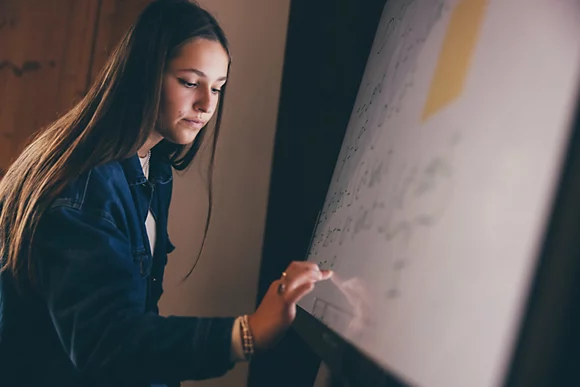
American and Canadian Studies (Study Abroad)
Overview
The programme American and Canadian Studies (Study Abroad) BA (Hons) is a unique opportunity to study diverse culture, polities, history, and literature while gaining international experience through a year abroad. Mainly, it's a comprehensive programme that provides a deep understanding of North American societies.
The programme culminates in a transformative year of study at a partner university in North America, allowing students to immerse themselves in the culture and academic environment of the region.
Students will explore key historical events, political systems, social movements, and cultural expressions of both countries. The extensive curriculum and international experience offered by this programme will cultivate a robust skill set, enhancing their career prospects and personal growth.
This course will elevate their degree with a transformative year of study at a top US or Canadian university.
Objectives
- Enhance critical thinking, research, and analytical skills.
- Develop academic writing and oral communication proficiency.
- Develop intercultural competence and global citizenship.
- Prepare for international relations, diplomacy, education, business, and government careers.
Prerequisites
- Preference two A-levels or equivalent.
- English language proficiency for international students.
- Solid interest in the history and international relations sector.
- Strong communication and interpersonal skills.
- Desire for positive impact.
Curriculum Outline
- American Freedom? Empire, Rights, and Capitalism in Modern US HIstory, 1900-Present
- American Literature and Culture 01: 1830-1940
- American Literature and Culture 02: Since 1940
- Approaches to American Culture 01: An Introduction
- Approaches to American Culture 02: Developing Themes and Perspective
- From Landscapes to Mixtapes: Canadian literature, Film, and CultureRich,
- Race, Power, Money and the making of North America, 1607 - 1900
- Key Texts in American Social and Political Thought
- North American Regions
- Study Abroad
- Dissertation in American and Canadian Studies
Teaching Method
- Lectures
- Group lectures
- Guest lectures
- Interactive seminars
- 1-2-1 meetings or discussions
- Personal tutors
- Peer mentor
- Tutorials
Modules
- Prosperity
- Depression
- War
- Liberal reform
- Political conservatism
- Minority protests
- Multicultural awareness
- International power
- Address questions about the nature of the American ‘canon’, raised by critics
- Explore related developments in visual culture and music
- The Business of College sports
- Controversies connected with the confederate flag and civil war statues
- Digital America and the power of ‘Big Tech’
- Policing Contemporary America
- Django Unchained: 21st Century US Cinema and historical representation
- Music
- Painting
- Cinema
- Television
- Various genres of writing
- Depicting 9/11 in film and photography
- Representing the past in public art forms, such as murals and monuments
- Re-staging the American Revolution in the Broadway musical Hamilton
- Re-imagining race, gender and sexuality in TV comedy-dramas like Orange Is the New Black
- Transforming political activism through social media in campaigns
- The wilderness
- Migration and multiculturalism
- Indigenous cultures
- Canadian and Québécois nationalisms
- Popular culture
- Canada’s relationship to the US
- Distinctive African-American cultures
- Broad chronological period
- Religion
- Race
- Class
- Capitalism
- Gender
- Sexuality
Assessment Methods
- Commentary
- Dissertation
- Essay
- Presentation
- Reflective review
- Written exam
Course Duration
This programme may vary depending on the institutions and countries, but the general standard options in the UK are:
- 04 years (full-time).
Facilities
- Extensive collections of books, journals, and digital resources
- Specialized research facilities, including databases and archives
- Quiet study spaces and group study rooms
- Experienced faculty members
- Regular seminars, workshops, and guest lectures
- Opportunities for research projects and internships
- Language courses in English, French, and other relevant languages
- Language labs for practicing pronunciation and listening skills
- Computer labs with access to specialized software and online resources
- High-speed internet access for research and communication
- IT support services to assist with technical issues
- Academic advising and tutoring
- Career counseling and job placement services
- Counseling and mental health support
- Opportunities to join clubs and societies
- Social events, cultural activities, and volunteer opportunities
- Disability support services
Career Pathways
- Journalist
- Editor
- Broadcaster
- Content Creator
- Teacher
- Lecturer
- Educational Consultant
- Diplomat
- Civil Servant
- Policy Analyst
- Business Analyst
- Marketing Consultant
- Financial Analyst
- Programme Officer
- Fundraiser
- Advocacy Officer
- Translator or Interpreter
- Librarian
- Tour Guide
Fees and Fundings
- Tuition fees are £23,000 per year and may vary depending on the institution.
- Scholarships, grants, and financial opportunities are available.
- Government loan aid is available.
Entry Requirements
- A level: ABB
- A high school diploma or equivalent
- Satisfactory scores on standardized tests (e.g., SAT, ACT, IELTS)
- English Language and Mathematics GCSE at grade C/grade 4 or above
- A passion for history and International relations
- Strong communication and interpersonal skills
- A strong academic record
Field Work and Internships
- Participate in cultural exchange programmes or volunteer work to experience firsthand.
- Opportunities for valuable experience through internships, placements, and work facilities.
Certifications
- International relations
- Diplomacy
- Education
- Business
- Government
- Journalism
- Non-profit organizations
Intakes
Typically, it takes twice a year (fall and spring), but may vary like:
- Fall (September/October)
- Spring (January/February)
- Summer (May/June)
Student Testimony
"I can't tell you how different I am compared to when I started. It's been a real journey, and it's so nice to look back and see how far I've come." Says - "Liberty Jones, American and Canadian Studies (Study Abroad) BA (Hons)."
Frequently asked questions
Students can develop a range of skills, including critical thinking, research, analysis, problem-solving, communication, and intercultural competence.
